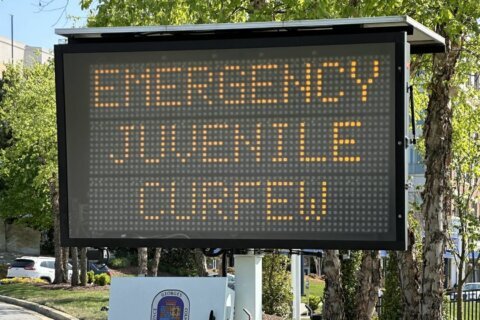It didn’t give police reform activists everything they wanted, and it didn’t pass unanimously. However, the Prince George’s County Council moved closer to finalizing police reform legislation required under Maryland law.
During its committee of the whole meeting on Monday, council members voted 10-1 in favor of the bill following some changes, pushing it closer to final passage.
A final vote by the full council itself is still on the agenda for its Tuesday meeting. However, county lawmakers still had questions about some provisions of the bill that they hoped the Attorney General’s office could provide answers to. The council may hold off on a final vote until they receive word from the AG’s office.
One of the main issues still being debated with the legislation is exactly who should serve on the police accountability board it creates — and what powers they should have.
Ahead of the roughly five-hour meeting in Largo on Monday, activists that included relatives of some killed by police officers, gathered outside the building to demand that “membership actually reflect the community” with the 11-member board appointed by the county council.
“What we don’t want to see is what we’ve seen already, and that’s power being centralized in the county executive and police chief’s hands,” said Yanet Amanuel with the ACLU of Maryland.
Advocates for police reform have asked for a more diverse board that reflects the various races, genders and sexual orientations in Prince George’s County. They have also asked for members with experience in mental health disorders, homelessness and substance abuse.
In the end, the council agreed with legislation that would have its body choose five of the members, while the county executive would get to choose the other five and the chair of the board, though only with council approval. In addition, a super majority of the council (8 of 11 members) can vote someone off the board.
Another significant demand from advocates was the prohibition of former law enforcement officers from serving on the board. They argued that police can’t police themselves and hold fellow officers accountable. That, too, was a bridge too far for some council members.
“It’s only one of 11 members of the board. It may give perspective to board members who may not be familiar with law enforcement,” said District 4 Council member Todd Turner. “I don’t think it’s determinative of any outcome as part of that process.
“I’m not sure why we’d want to conclude somebody, just because they have a law enforcement background, that they should not participate in the board itself,” he added.








